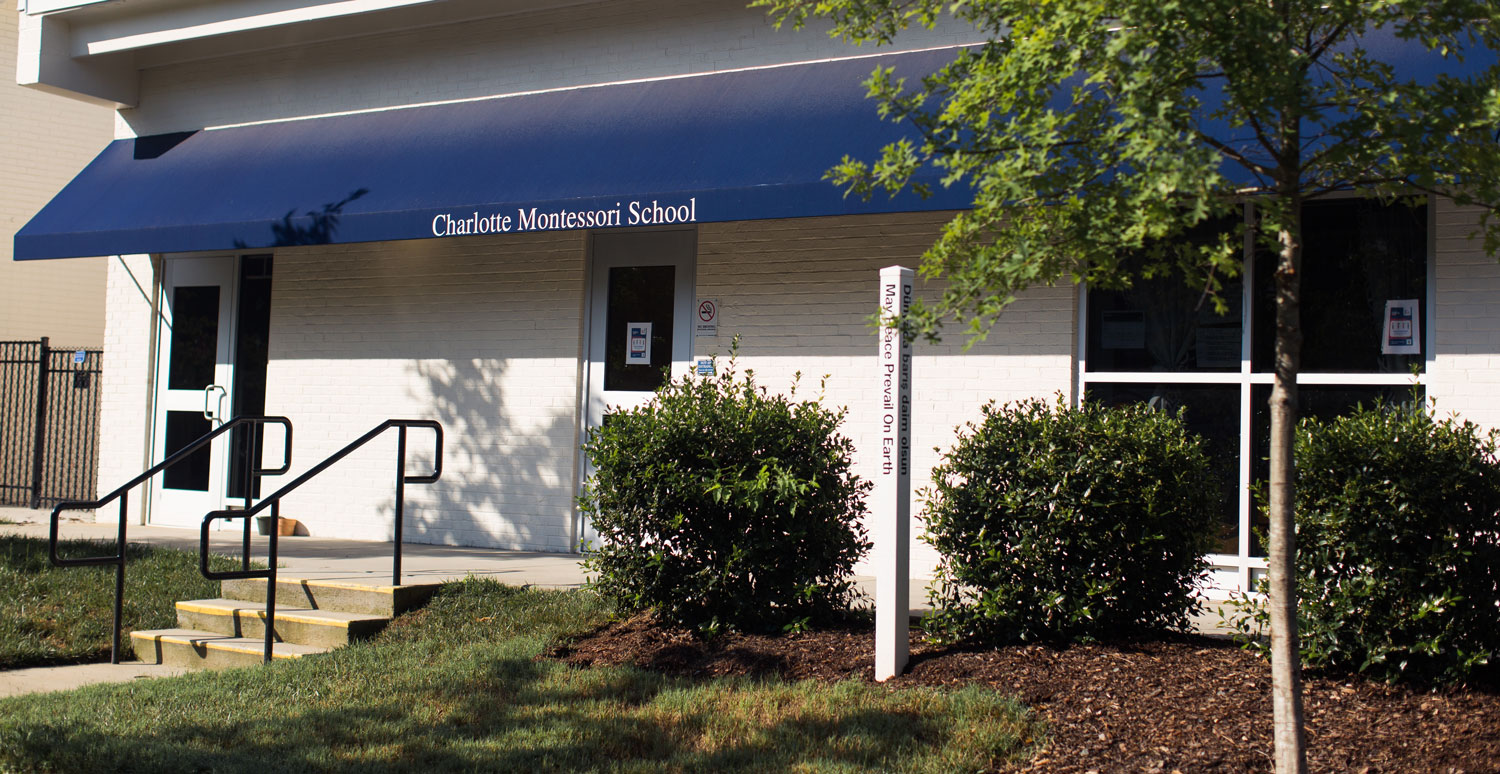
FAQs
The Montessori environment is set up so that the child has every opportunity to cultivate their independence. The children have works available to them and can freely choose what works they find interesting. Each work is created to help a child develop a skill in refining their senses, language, math, science, art, culture, or the care of their self. The teachers will give them lessons with new works and guide them as necessary throughout the day.
A detailed schedule and curriculum description for the Toddler class is available here.
The schedule and curriculum description for the Primary class is available here.
These children who sought their work in freedom, each absorbed in a different kind of task, yet all belonging to the same group, gave an impression of perfect discipline.
— Dr. Maria Montessori
During any given worktime, we are striving for all of the children to be engaged in a purposeful activity. This purpose and focus contributes to the quiet environment.
Another main goal of the Charlotte Montessori curriculum is to nurture a culture of peace, grace, and respect. This shows in the way our students interact with each other and the classroom. They are confident that their needs will be met. They feel secure and in control. With these feelings comes an atmosphere of calm and quiet not often found in traditional schools.
There are many artistic and creative works available to our students. From painting and stamps to drawing and story writing, the kids are excited to try these works and use their imagination. They are also able to use other works in creative ways if they wish. One of the benefits of an independent work cycle is that the child can choose their own approach to the work. Each child is encouraged to experiment with what works for them.
One of the huge benefits of the Montessori classroom is mixed age grouping. Maria Montessori said it best:
The main thing is that the groups should contain different ages, because it has great influence on the cultural development of the child. This is obtained by the relations of the children among themselves. You cannot imagine how well a young child learns from an older child; how patient the older child is with the difficulties of the younger.
— Dr. Maria Montessori
Children working on various levels of work depending on their abilities or interest at any given moment have the opportunity to learn from each other.
Motivation is another way that the mixed ages and abilities aid the class. The younger children see their older friends doing a work and strive to be like them. They partner up with someone who is experienced with a work.
We rely on all of the members of the class at various parts of the day. Maybe we rely on the older children a bit more to be role models, help with a lesson for a younger friend or do various jobs for us. But the younger children also have important roles in the class. They are the ones that need the helpers, who learn from the older children and will take over their role in a year.
In the Toddler classrooms, the student to teacher ratio is 6 to 1. In the Primary classrooms it’s 12 to 1. There are two teachers in each class: a lead teacher and and assistant teacher. The Toddler classrooms each have 12 students and our Primary classes each have 22-24 students, well below the state requirements.
Parents provide lunch for children each day. The classrooms have refrigerators that lunches can be stored in.
Below you will find more information about the USDA requirements for packed lunches.
USDA Requirements for Lunches
With every freedom there is a boundary. For instance, our students serve themselves snack, but they are also responsible for choosing an appropriate time to eat. This is when snack has been put out by the teachers and there is an empty spot at the table for them to sit. The children can also choose their works, but they are expected to treat these respectfully and gently. They are also expected to put their works back when they are done. If any student does not meet these expectations, the teachers will intervene and redirect the child as necessary. The teacher may notice this behavior is because a child needs more stimulation or simply needs a different way of expressing themselves. A child hitting things may be redirected towards a drum. Or perhaps the teacher knows that they are feeling particularly frustrated that day and may help them recognize these feelings and deal with them in a more productive manner.
Our teachers act as guides for our students. They observe each child closely for what interests them as well as for what they struggle with. The teachers also regularly adapt the classroom to meet the needs of their various students. We want the children to have works available to them that will develop their intellectual growth. A teacher will give lessons with each of the works in the classroom and offer correction only if necessary. The Montessori philosophy encourages independence and self-direction in children, but children also require guidance and mentors at this young age. This is the role that our teachers fill.
Our teachers have college degrees and either have a Montessori Certification or are working towards that degree. Most of our assistants are also degreed. All of our teachers have their North Carolina Teaching Credentials.
Once a week, each class is visited by a music teacher and a Spanish teacher for lessons on these subjects. We also have our Partners in Education (PIE) program. These classes are also once a week for an additional fee. In the past we have had tumbling, art, karate, and yoga.
If the weather permits, the children usually have one outside recess in the morning and one in the afternoon. We follow North Carolina guidelines on whether or not it is safe for the children to be outside.
One of the main guiding principles in the Montessori philosophy is to “follow the child”. The classroom is designed especially for young hands and minds to explore. The works are designed to empower the children to express themselves. Because we’re enabling the children to decide what they’re ready for, instead of making this decision ourselves, we’re often pleasantly surprised with their abilities. This is why you’ll see toddlers that can serve themselves snack or recognize letters and numbers at an early age. They are not necessarily gifted, they have just been allowed to develop in a way that accentuates their abilities and strengths.
Charlotte Montessori School
219 East Boulevard Charlotte, NC 28203
Phone: 704-332-7733 • Fax: 704-370-6111
Email:charmont@
Hours: Monday – Friday • 7:45 am – 5:15 pm

